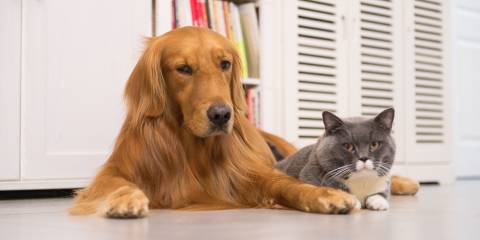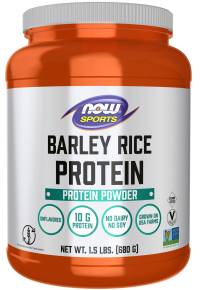If your wet dog smells like a wet dog or your cat’s litter box makes your eyes water, you know about pet odors.
If a skunk sprays your companion animal, you have a serious olfactory challenge, just as you do if your pet rolls in manure, dead fish, or well-rotted mammal parts.
Unwanted Pet Odors
The pet deodorizing business is really booming. Many natural foods markets carry products that can be added to an animal’s food, applied topically, or sprayed in the air to reduce or eliminate offensive odors.
Why Does My Pet Smell?
What causes those distinctive smells that we associate with dogs and cats? According to holistic veterinarian Stacey Hershman, DVM, who makes house calls in Rockland County, New York, the causes can be wide-ranging:
- food ingredients
- tooth or gum infections
- urinary tract problems
- oily seborrhea
- yeast and bacterial infections.
Natural Pet Diets Can Prevent Odor
“Upgrading a pet’s diet is important because that addresses the underlying cause of most odor-causing conditions,” she says. Dogs and cats evolved on a diet of prey animals, high in animal protein and low in vegetable matter, including seeds and grains. Pet foods containing grains or soy are popular because they’re inexpensive and filling, but these ingredients are difficult for dogs and cats to digest.
A Raw Diet May Help Your Stinky Pet
“Many dogs and cats do well on a raw diet of meat and bones with small amounts of vegetables, supplemented with digestive enzymes and probiotics,” says Dr. Hershman. “For those who can’t feed a home-prepared diet, upgrading to a better quality meat-based, low-grain, soy-free pet food can help.”
“I’ve been feeding my dogs a raw diet for many years now,” says trainer Nancy Strouss at People Training for Dogs in Nyack, New York. “Since I made the switch, they always smell good and need to be bathed less often. They are also less prone to ear infections, which cause bad odors in many dogs."
"This diet helps keep their teeth tartar-free, which means healthy gums and good breath. I believe many dogs smell bad because their bodies are constantly detoxifying the poor quality, unnatural ingredients in many processed pet foods.”
High-Grain Foods Can Cause Pet Flatulence
Flatulence can also be a problem, especially for dogs on grain- or soy-based foods. “It always seems to hit at home when you have guests over,” says aromatherapist Kristen Leigh Bell.
Remedies for Your Smelly Dog or Cat
No matter what you feed your dog or cat, consider adding a few simple supplements in addition to the previously mentioned digestive enzymes and probiotics.
-
Coconut Oil May Improve Pet Digestion
“There have been numerous reports of virgin coconut oil reducing or eliminating disagreeable odors in pets, no doubt because of the oil’s antimicrobial properties,” explains Bruce Fife, ND, author of Coconut Cures and other books. “The medium-chain fatty acids in coconut oil kill many harmful bacteria and fungi but are harmless to friendly gut bacteria. In fact, they improve digestive function.”
The recommended dose for pets is 1 teaspoon coconut oil per 10 pounds of body weight daily in divided doses. Start with small amounts and gradually increase to the recommended dose.
-
Green Herbs in Pet Food Can Prevent Odor
Also consider adding deodorizing herbs and spices to food. Finely minced green herbs such as wheat grass or parsley contain chlorophyll, which helps deodorize breath and skin from the inside out. Several sweet spices, including cinnamon and cloves, can be freshly ground and added to a pet’s food to help improve digestion and eliminate body odors.
Start with tiny amounts and gradually increase minced green herbs to about 1/4 teaspoon per 10 pounds of body weight per day and about 1/4 teaspoon ground spices per 25 pounds of body weight per day.
-
Holistic Essential Oils for a Stinky Pet
The author of Holistic Aromatherapy for Animals, Bell recommends adding a blend of spicy essential oils to the dog’s food, such as 1 tablespoon sweet almond oil or coconut oil mixed with 3 drops each of the essential oils of caraway, cardamom, cinnamon leaf, nutmeg, and tangerine.
“Many dogs enjoy the taste and will simply lick it off your hand,” she says. “Of course, always use the highest quality essential oils when ingestion is involved.”
Add 1 to 2 drops of this blend to the dog’s food, and then give an additional 1 to 2 drops after the meal.
Prevent Pet Odor with Hygiene and Body Care
Try brushing your pet’s teeth with a canine or feline toothbrush and pet toothpaste, plain water, coconut oil, or a small amount of sea salt. Pet supply stores sell gauze wipes containing tooth-cleaning chemicals, or you can make your own by wrapping your finger with gauze and dipping it in salt water.
In addition to cleaning your pet’s teeth, brush or comb its coat every day to remove old hair or fur and any debris that might be caught in it. Brushing distributes natural oils that keep the coat healthy. To freshen your pet’s coat, make it less allergenic, improve its smell, and leave it looking fluffy, spray or soak it to the skin with an enzyme product appropriate for dogs, cats, birds, rabbits, or other animals (check labels carefully), or rinse your pet with a fragrant herbal tea such as chamomile, lavender, or peppermint.
Look for pet shampoos that contain natural ingredients rather than harsh oil-stripping detergents. Deodorizing shampoos may contain fragrant essential oils such as cinnamon leaf, rosemary, sweet orange, lemon, lavender, or rose.
How to Get Out Skunk Smell
Dogs and cats are notorious for getting too close to skunks and getting sprayed in the process.
-
Tomato Juice
A traditional home treatment is to apply a can of tomato juice and let it stand for 15 minutes or longer before washing it out.
-
Krebaum's Formula
A more effective home treatment was developed in the 1990s by Illinois chemist Paul Krebaum, who is an expert on thiols, the chemicals that give skunk spray, fecal matter, and decomposing flesh their distinctive odors.
To neutralize any of these substances, Krebaum recommends combining:
- 1 quart of 3 percent hydrogen peroxide
- 1⁄4 cup baking soda
- 1 to 2 teaspoons liquid soap
(For large pets, one quart of tepid tap water can be added for complete coverage.)
Apply thoroughly, avoiding the pet’s eyes, and rinse off. Because the mixture is volatile if stored, prepare immediately before using.





